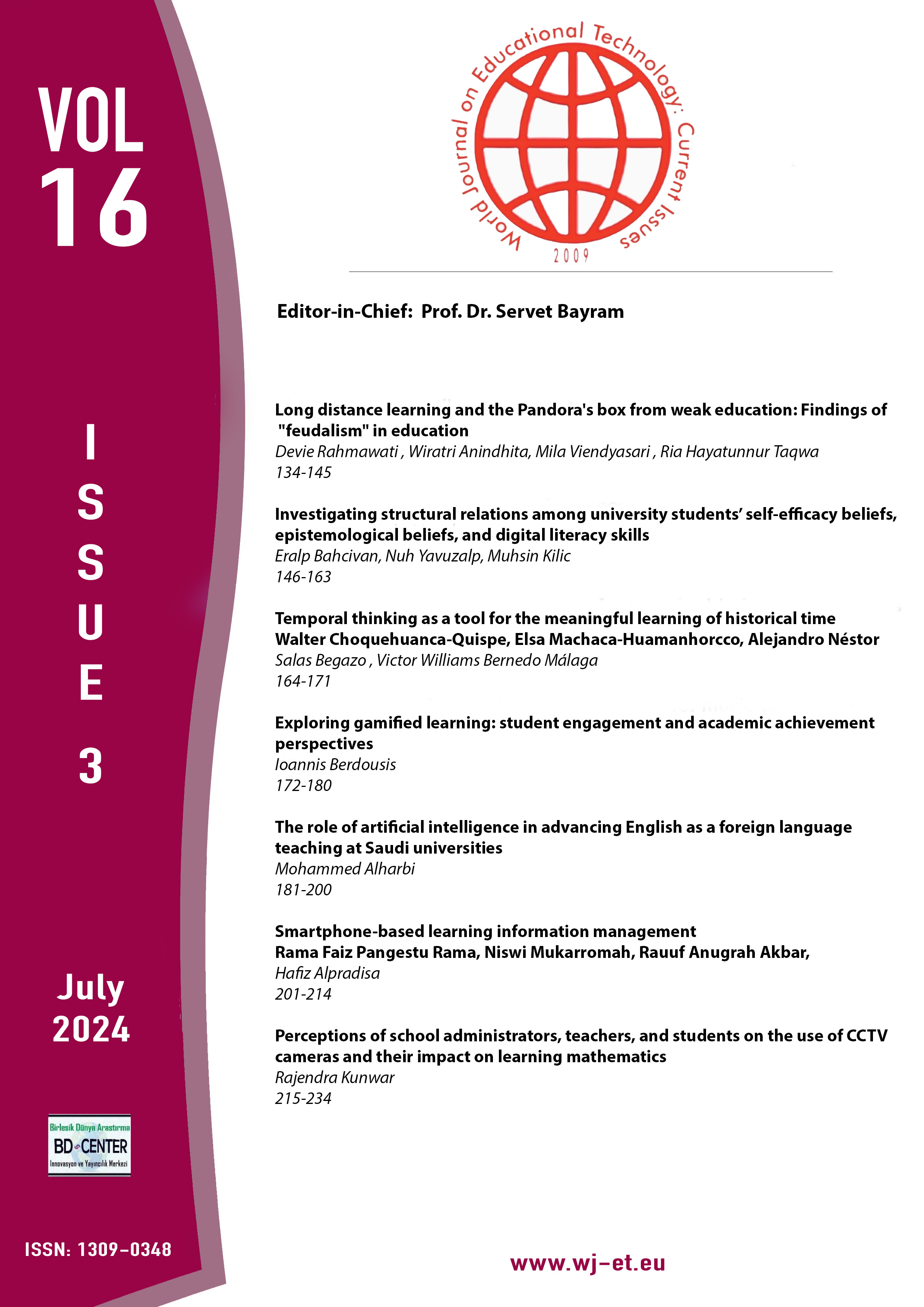Temporal thinking as a tool for the meaningful learning of historical time
Main Article Content
Abstract
The goal of this study, which employed the quantitative method of correlational design with temporal thinking and significant historical time learning as research variables, was to ascertain the relationship between the degree of temporal thinking and significant historical time learning as part of the competencies in the social sciences. The participants consisted of 178 Peruvian high school students. The research technique used was a survey with a questionnaire made up of 20 multiple-choice items, with reliability confirmed by sufficient Cronbach's alpha, and review by expert judgment. The results of the study revealed statistically that the level of temporal thinking is significantly related to the level of significant learning of the historical time. Also, Spearman's correlation coefficient with a positive relationship of low level is evidenced. In conclusion, the study’s findings indicated that the understanding of historical time as part of temporal thinking acts as a cognitive organizer of historical knowledge, and therefore, determines the significant learning of historical time.
Keywords: Historical time; learning; meaningful learning; temporal thinking.
Downloads
Article Details

This work is licensed under a Creative Commons Attribution 4.0 International License.
World Journal on Educational Technology: Current Issues is an Open Access Journal. The copyright holder is the author/s. Licensee Birlesik Dunya Yenilik Arastirma ve Yayincilik Merkezi, North Nicosia, Cyprus. All articles can be downloaded free of charge. Articles published in the Journal are Open-Access articles distributed under CC-BY license [Attribution 4.0 International (CC BY 4.0)].
Birlesik Dunya Yenilik Arastirma ve Yayincilik Merkezi (BD-Center)is a gold open-access publisher. At the point of publication, all articles from our portfolio of journals are immediately and permanently accessible online free of charge. BD-Center articles are published under the CC-BY license [Attribution 4.0 International (CC BY 4.0)], which permits unrestricted use, distribution, and reproduction in any medium, provided the original authors and the source are credited.
